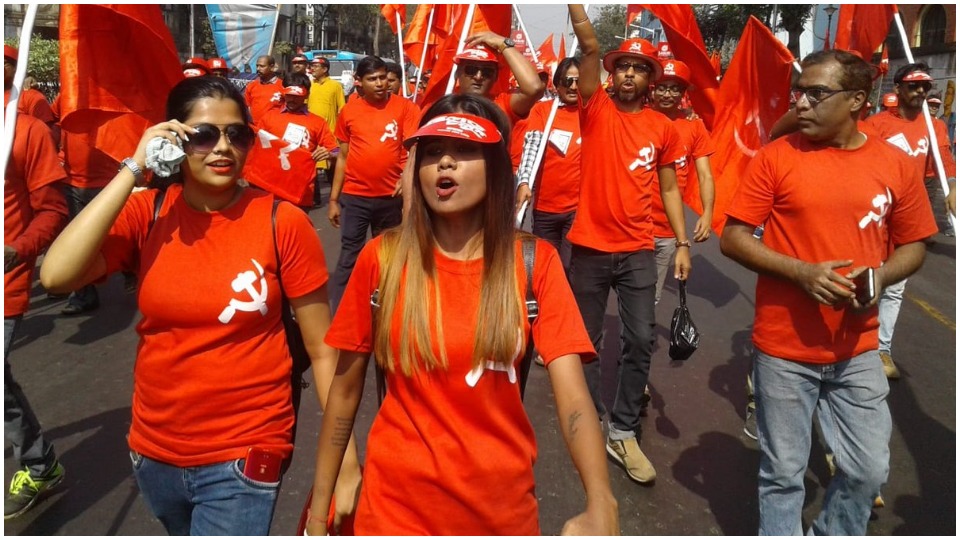Sujit Kumar Mohanty
In the Hindi feature film ‘Raid’ an honest IRS official, played by Ajay Devgn, attempts to unearth black money from the house of a corrupt politician. In his pursuit, he encounters many obstacles and in the end is surrounded by cronies of the politician who attempt to kill him. The plot of the film bears resemblance to the incidents that unfolded in Kolkata February 3, although with one key difference.
When CBI officers swooped on Kolkata Police Commissioner Rajeev Kumar’s Loudon House residence to question him in connection with the Saradha chit fund scam, they were not stopped by any political crony but the Kolkata police itself.
Chief Minister of West Bengal Mamata Banerjee, along with the state’s Director General of Police, rushed to the Commissioner’s residence and claimed the CBI was working at the behest of Prime Minister Narendra Modi and BJP President Amit Shah.
While all eyes were fixed on Didi and Modi, an equally interesting political development unfolded in Kolkata the same day. A huge crowd turned out at Brigade Ground for a rally organised by the Left Front. It was the same venue where Mamata had a few days prior held a United Opposition rally which the Left Front boycotted. The rally assumes significance and cannot be overlooked.
The political establishment of the country today resembles Vladimir and Estragon, who through the use of conventionalised speech, clichés, slogans and technical jargon, has created euphoria surrounding the arrival of Godot
The Left Front had been a formidable force in West Bengal. But the 2011 elections ended their 34-year rule, paving the way for Trinamool Congress. The decline of the Left Front also paved way for the BJP to emerge as the leading opposition party in West Bengal. But, the turnout at the Left Front rally was significant and makes one wonder whether the Left has really been routed from West Bengal. The showdown between the Centre and the state the same day appeared to be an attempt to steal the limelight from the Left and create an impression that both parties were serious about black money and corruption.
The timing of the Centre’s renewed vigor in investigating the chit fund scam in West Bengal clearly points to electoral benefits. With 42 Lok Sabha seats to be grabbed in the forthcoming Lok Sabha elections, no stone is being left unturned to flare emotions of the masses and the stage has already been set for more “theatre of the absurd”.
Coined by Martin Esslin and derived from the 1942 essay of Albert Camus titled ‘Myth of Sisyphus’, “theatre of the absurd” defines the human situation as basically meaningless and absurd. In absurdist drama, language was not trusted as a means for communication. Absurdist theatre tried to make people aware of the possibility of going beyond everyday speech conventions and communicating more authentically, moving away from the use of language merely as a vehicle for conventionalised, stereotyped and meaningless exchanges.
In the legendary absurdist play ‘Waiting for Godot’ (1952) by Samuel Beckett, the two lead characters, Vladimir and Estragon wait for the arrival of Godot. While waiting, they engage in discussions that keep the audience glued to their seats in the anticipation that Godot might turn up any moment. But Godot never arrives.
The political establishment of the country today resembles Vladimir and Estragon, who through the use of conventionalised speech, clichés, slogans and technical jargon, has created euphoria surrounding the arrival of Godot. But, Godot is nowhere to be seen. The events in Kolkata, and the drama that ensued, are among the many such instances that remain to be seen in the days ahead.
The writer teaches journalism and mass communication at Central University of Orissa, Koraput.
